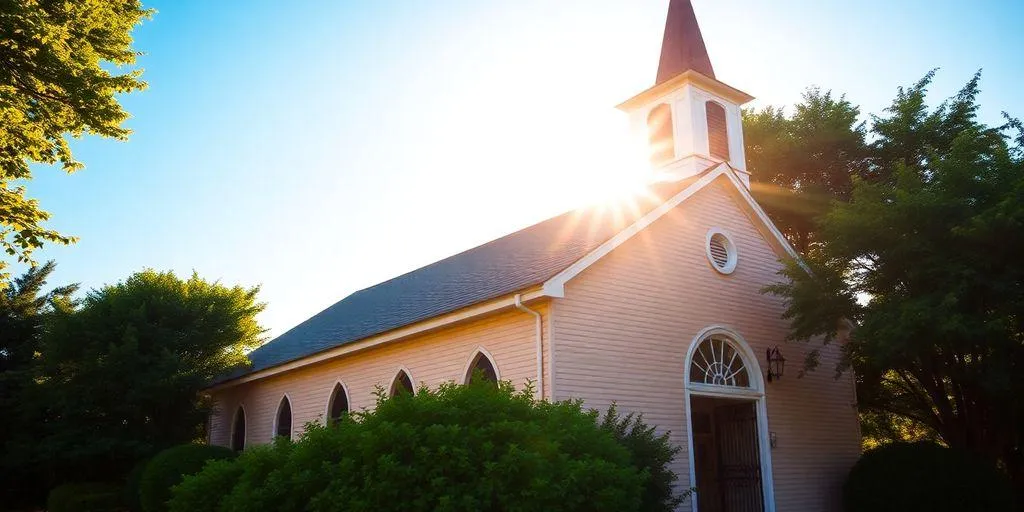
Six Powerful Local SEO Tips Your Church Needs To Know
Search Engine Optimization has changed a lot recently, with Google focusing more on local results. This is great news for churches! However, ranking in local searches is different from general searches. This article will walk you through some key differences and offer practical tips to help your church connect with more people in your area.
Six Powerful Local SEO Tips Your Church Needs To Know
Understanding What Local SEO Is
Claim Your Google My Business Listing
Understanding What Local SEO Is
Local SEO is different from regular search engine optimization. Its main goal is to get your church to show up in the Google Map Pack. This is the list of two or three organizations that appear at the top of most local Google searches. These listings link to your Google My Business profile, not directly to your church website.
For example, if you search for "churches near me," you'll likely see some ads, then a map with a few local churches listed. Most people don't look past this Map Pack section. This is why local SEO is so important. It's also a great way for smaller churches to be just as visible as larger ones in their community. Your size doesn't really matter as much here; it's more about how you manage your online presence.
Claim Your Google My Business Listing
It's tough to appear in the Google Map Pack if you haven't claimed your Google My Business listing. This is an easy step, and you can get started at business.google.com.
Once you're there, it's important to add all your church's information. This includes:
Service times
Office hours
Website address
Social media links
Location details
Parking information
Directions
Don't forget to add photos! While pictures of people are usually best for church websites, for Google My Business, images of your location and facility are very helpful. This step might only take you about 15 to 20 minutes, but it can make a big difference in how many people find your church.
Consistently Use Your NAP
One of the most important things you can do for local SEO is to consistently use your NAP, which stands for Name, Address, and Phone Number. Whenever you share your church's name, address, and phone number online, it needs to be written the exact same way every single time. This helps Google's system better rank your church.
For instance, if your church is called "First Baptist Church," always write it that way. Don't sometimes use "FBC" or "First Baptist Church of [City]." The same goes for your address. If you use a nine-digit zip code sometimes and a five-digit zip code other times, Google might see them as different. Always use the same street abbreviations and number formats. For phone numbers, if you use dots between numbers or parentheses around the area code, stick to that format consistently. This consistency ensures that all your online mentions build up your church's presence in one direction, rather than splitting its "juice" across different variations.
Submit Your Church To Listing Sites
There are hundreds of websites that list organizations online, from Yellow Pages to Yelp. Each of these sites plays a part in how you rank in local searches. The more listing sites that link to your church, the better you will rank in Google's Map Pack.
Manually submitting your church's information to all these sites can be a huge task. Plus, many of these sites are user-editable, meaning someone else could change your information, leading to inconsistencies. This is why many churches use a service that submits their info to hundreds of listing sites and keeps that info up to date. These services typically cost between $60 and $150 per month, but they can be a worthwhile investment to ensure your church's information is accurate and consistent across the web, helping you reach more people.
Ask Members for Reviews
It might seem strange to ask for reviews for a church, but reviews are really important to most people today. Think about it: when was the last time you bought something online without checking the reviews first? People often do the same when looking for a church.
It can be helpful to think of reviews as a chance to share testimonies. Encourage your members to share their positive experiences online. Besides helping new people decide to visit, reviews also have SEO value. The more reviews you have, especially on Google, the more Google's system sees your church as a relevant and active organization, which helps you rank higher.
Focus on getting reviews on Google and Facebook, as these platforms encourage organizations to ask for reviews. Be careful with sites like Yelp, which have different rules about soliciting reviews. It's best to encourage reviews naturally rather than making a big announcement that could lead to a sudden, suspicious surge in reviews.
Respond To All Reviews, Good And Bad
Just as important as getting reviews is how your church responds to them. Always respond to both positive and negative reviews.
For positive reviews, a simple "Thank you!" or a personalized message can go a long way. For negative reviews, which every church will likely receive at some point, it's important to respond kindly and address the issue. You usually can't delete reviews, so your response is key.
Here's a good approach for negative reviews:
Apologize: "We're sorry that was your experience."
Don't Argue: Avoid trying to debate or litigate the issue online.
Invite Offline Conversation: Suggest they contact you directly to discuss further.
Keep it Short: One response is usually enough. A long back-and-forth can make the negative review more prominent.
Responding thoughtfully shows that your church is engaged and cares about its community, which can actually make a good impression on potential visitors.

